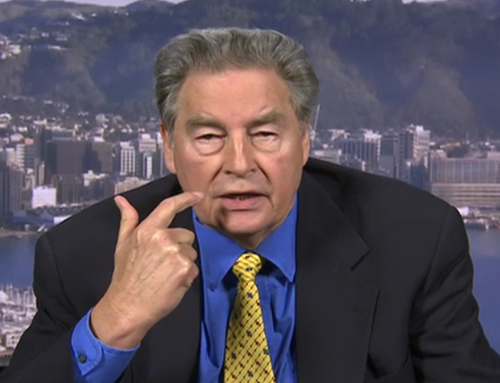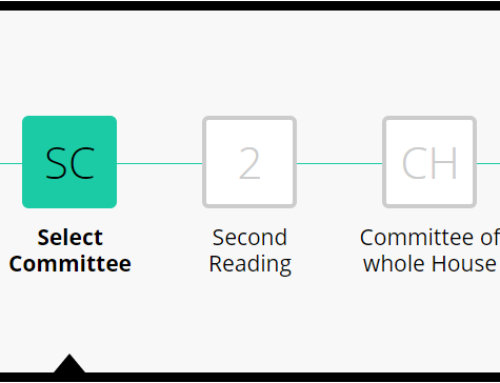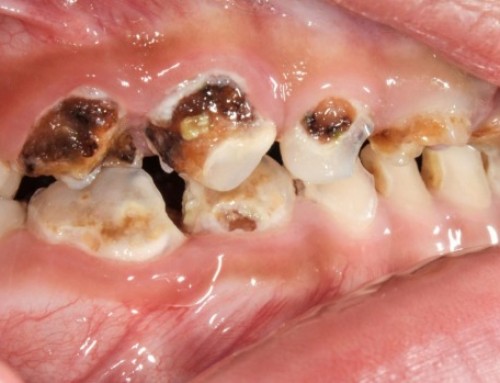Waikato University student Luke Oldfield was awarded a summer research grant to establish what role vested interests in the natural health industry had played in Hamilton City Council’s fluoride tribunal process. The project is called “Public Integrity and Participatory Democracy: Hamilton City Council’s Water Fluoridation Decision“. This evening he displayed a poster(above) to an audience of academic faculty sharing some preliminary results of his research.
One staggering statistic among these findings was that approximately 2/3 of all written submissions were directly or indirectly provided by parties associated with the ‘natural health’ lobby. No wonder why some anti-fluoridationists didn’t want this research to be done and calling it “bogus research” before results released.
Luke will be using the data to inform a broader discussion about abuse and misuse of democratic process in the provision of public health policy, which is the focus of his Masters dissertation.







Correlation is not causation, a trap for failing a thesis.
Please note this was not a scientific experiment, it’s political science research. The forthcoming paper will allow readers to decide whether undisclosed lobbying in local government by vested interests brings participatory democracy into disrepute.
Thank you for taking an interest in my research.
Did Duane Oldfield make a submission to the HCC regarding the fluoride tribunal?
He lives in Hamilton, is aware of the fluoride issue and is a student of politics.
It would be strange if he didn’t.
Hi Kane,
As has been explained to you on numerous previous occasions, no I did not. I was unaware the tribunal was even taking place, the first heard of the decision when it was announced on the evening news and shortly afterward I joined other skeptics on the “Making Sense of Fluoride” project.
I do note, however, that you and a number of your family members, many of whom live outside of Hamilton did make submissions – this is certainly more pertinent to the discussion.
Thank you for taking an interest in my research.
“I do note, however, that you and a number of your family members, many of whom live outside of Hamilton did make submissions – this is certainly more pertinent to the discussion.” Do you mean you only want people from the area to be taking part in either side of the discussion? Or that you will list as best you can all ones from outside?
It’s not a matter of ‘wants’ but rather a discussion of whether participatory democracy renders a result that reflects community sentiment.
The role of persons outside of a locality (either for or against) in influencing a local decision is certainly pertinent to the discussion.
Luke wrote:”It’s not a matter of ‘wants’ but rather a discussion of whether participatory democracy renders a result that reflects community sentiment.” I can understand that rules against fluorocarbons to save the ozone layer might have been subverted if lobbyists had been able to swing a public vote. Would you call such subversion a lack of public integrity?
“I can understand that rules against fluorocarbons to save the ozone layer might have been subverted if lobbyists had been able to swing a public vote. Would you call such subversion a lack of public integrity?”
The only information released at present is that approximately 2/3 of submissions had some tangible link back to the natural health industry.
As per my previous comments I’d recommend you avoid jumping to conclusions…
Luke, will you be questioning a range of commissioners, to see how they assess submissions, and disseminate their answers?
*Their approach to formatted submissions where there are many identical
*Submissions or assistance from authorities outside the health board area
*The weight of numbers of submissions as opposed to votes in a referendum
I do hope you disseminate all the answers without a bias.
At the moment FSANZ are doing a submission process on addition of vitamin D to food. Some submitters may submit the off-pat line that vitamins are money down the toilet. They may be working against tooth health and removing competition for the fluoride promoters.
Thanks for taking an interest in my research.
I’ll let you know when it’s finished.
“Luke, will you be questioning a range of commissioners, to see how they assess submissions, and disseminate their answers?”
A comprehensive breakdown of data collection will be provided when the paper is completed. It would be premature to discuss such things prior to publication.
The small data set and poster was released to Making Sense of Fluoride to coincide with what was made publicly available on Feb 13th.
Thanks for taking an interest in my research.
Luke, that was also my experience. And I did hear a lot of complaints from Hamiltonians who felt this whole tribunal process took place behind their backs in an underhand way.
Hopefully organisations like “Making Sense of fluoride” will ensure this doesn’t happen in future.
Thanks Ken,
I think the mere fact that so many Hamiltonians were unaware a tribunal was even taking place lends to a suggestion that the tribunal may not have been an effective means to survey community sentiment.
Luke, are there any suggestions from your local Australia that we could use in New Zealand?
“Luke, are there any suggestions from your local Australia that we could use in New Zealand?”
Was that supposed to make sense?
Ken, why don’t you promote an open transparent public discussion on the topic of water fluoridation? It would be great to have Prof Gluckman & Prof Skegg try to answer some straightforward questions.
with a referee trained in outwitting ambiguity and dissemination bias
Kane, perhaps we could start with you and your organisation “answering some straightforward” questions – or even just allowing a reasonable discussion. Currently impossible because you ban discussion on your facebook pages.
When you remove your bans then you might, just might, be taken seriously on this. At the moment you are just being hypocritical.
Perhaps you could pose your “straightforward questions” here as several of our members are up to speed on the Fluoridation Review?
What about it, Kane? Why don’t you pose some “straightforward questions” here instead of the silly ones you normally come up with.
You aren’t banned here, after all.
Ken, I’m not sure why you don’t want to promote a full open honest transparent discussion with a neutral moderator with Gluckman/Skegg?
Why don’t you want this to happen?
Kane, you misrepresent me. I am not at all opposed to a discussion with Gluckman and Skegg – why should I be?
But you are not being honest as you refuse to articulate any of the questions you might ask of them. And why them, why not someone who is expert in this field. These people are just representatives of organisations and it would be inappropriate for them to comment on details of reviews they commissioned but did not author. Only a silly person would “promote” your idea.
If you wish to ask questions about the Fluoridation Review they are the wrong people to ask. But anyway, you have your opportunity to ask here. I have done a thorough critique of your organisation’s report and you are not disagreeing with it, or posing questions about it.
Perhaps you can’t find anything wrong with my critique? 🙂
Significantly only one of the authors of your report has taken up my offer of a right of reply – I am posting his response today. All the other authors and “peer-reviewers have refused to take up the offer or have refused to respond to it.
That says a lot, doesn’t it?
So as far as your “questions” are concerned – a suitable response would be “put up or shut up!”
Ken, Fluoridation is now clearly a national debate. Skegg and Gluckman have put their name to a document that says it is ‘safe and effective’. Why don’t they just front up and defend questions about it? Surely if they had reservations they wouldn’t have signed off on the report. So they must have been comfortable with it.
It seems interesting that you would not want an open public transparent discussion about fluoridation.
Oh Dear, Kane. You are wrong to claim: ” Skegg and Gluckman have put their name to a document.” They are not authors – having simply commissioned the review as leaders of their organisations at the request of a number of local body councils who are fed up with all the misinformation and confusion coming from political activists.
I am sure they are comfortable with the report – most people are – including me.
Now I have done a thorough analysis of the report from your organisation which attempted to discredit the review – so I am quite happy to particpate in a discussion or exchange of opinion on the Review and your organisation’s report.
You misrepresent me agian – I am very keen for an open and transparent discssuion on the issue. I have found your orgnaisations are the only ones trying to prevent this by blocking me, and any other pro-science people, from discussion on your facebook pages.
Put you money where your mouth is and stop censoring your pages to prevent this discussion.
Nor is an epidemiological study a “scientific experiment.” In epidemiology it is not usually possible to do double blind controlled testing. Correlations may be seen but they do not mean causation. An interesting example in another field is the more firemen who go to a fire the more the damage there is.
Correlations does not mean causation, but it could mean causation, it could be a contributor, it may belong to a basket of circumstances. Disregarding data with a cliche is not a particularly strong argument.
I think you’re trying to wish away the role of vested interests prematurely, you can critique the paper once it’s complete.
Thank you for taking an interest in my research.
Yes if there is causation there is usually a correlation if enough data. One thing we need to watch out for is dissemination bias. You talk of “other skeptics,” indicating you are one. How will you avoid selectively presenting data if this is just political?
I have a declared interest as a founding member of ‘Making Sense of Fluoride’, this was included within my ethics application.
My supervisor is not a skeptic and as is always the case any publication will need to go to independent peer review.
As i’m sure you’re aware as an individual i’m entitled to my academic freedom.
Thanks again for taking an interest in my research.
Luke you are also entitled to your political freedom but if you set out on a “study” to persuade then you are laying youserlf open to strong scrutiny.
Luke did your ethics application say what “making sense” means?
“Luke you are also entitled to your political freedom but if you set out on a “study” to persuade then you are laying yourself open to strong scrutiny.”
The term i used was academic freedom.
“Luke did your ethics application say what “making sense” means?”
Yes, I made it clear that I had a ‘pro science’, ‘evidence based’ position.
Thanks again for taking and interest in my research, as this is just a poster and some preliminary data i’d now encourage you to wait until my research is completed.
I won’t be fielding any further questions at this time.
I should add, by all means, scrutinze away…
Luke, I wrote : “Luke you are also entitled to your political freedom but if you set out on a “study” to persuade then you are laying yourself open to strong scrutiny.”
You wrote “The term i used was academic freedom.”
I said “also.”
This looks like it’s for political manipulation.
You must know that submission assessors assess on quality of submission, not volume, or source.
Now you are putting up the straw man that source and volume do matter, apparently so as to introduce the idea of problems of democracy.
I guess you’ll have to wait for the paper before hypothesising about its outcomes.
This was a poster highlighting the extent of vested interests, nothing more.
And Soundhill, don’t forget the prostitutes and clergymen – get some great correlations there (and strange to see your arguing against correlations when you do your damnest to find them between the most irrelevant factors). But what the hell has this to do with an analysis of this tribunal process?
Ken I am interested to see if your concerns are included verbatim in the study. And so are you saying the statement “One staggering statistic among these findings was that approximately 2/3 of all written submissions were directly or indirectly provided by parties associated with the ‘natural health’ lobby.” has nothing to do with the analysis, for that is what I am commenting on.
Soundhill, surely that is just a statement of fact – no statistical correlations are carried out.
Ken, The correlation Luke is trying to make is between democracy and the proportion of anti-fluoridation submissions..
“The correlation Luke is trying to make is between democracy and the proportion of anti-fluoridation submissions”
Actually, if you read the original summer research proposition you’d note that one of the task was to examine the level of special interest involvement, this is some preliminary data pertaining to that question. No conclusions have been drawn so i’d encourage you not to try and play semantics with something that does not exist.
How much this impacted the credibility of the tribunal process or participatory democracy as a viable model for measuring community sentiment is something that is yet to be published.
You analogue is so far from appropriate I have to presume that you have some vested interest in the alternative health industry.
It take very little effort to understand why a hugely disproportionate number of people who make their living undermining science and contemporary medicine, would oppose a community health care initiative strongly supported by science.
Sparrow are you talking to me? I am pro-science though not such with dissemination bias in it, In my firemen/damage example the cause was the larger fire which increased both the damage and the number of firemen. The fact that there may be more natural health enthusiasts doing submissions may be correlated to Luke’s supposition of lack of democracy, but is there a causal link in the correlation between proportion of natural health enthusiast submission and what Luke sees as democracy of lack of it?
Does Luke want to suppress the voices of those who feel strongly? For if so we would not have had universal suffrage.
Or does he want to suppress anti-fluoridation voices from outside but include pro-fluoridation believers from outside?
It is a common technique to divide groups to rule. An example is allowing only locals to submit on a seaside concern, though people from all the world use it. Maybe it is local developers want to lower dunes for views for their real estate. The rest of the world then lose the pleasant undulating walks and exercise without being able to submit. And maybe they lose tsunami protection.
For the truth about fluoridation to come out there needs to be listening to all voices. And there needs to be trust that they are being listened to.
Help me find a systematic review on cancer site in the body in terms of males and females at levels of fluoride to fluoridation. Then I will feel more trust. And help me with studies on sudden changes in fluoride level.
Let’s not have dissemination bias.
I feel it is shocking that Luke is saying he thinks if he declares his msof interest then that allows him to suppress ideas which go against his hypothesis.
“I feel it is shocking that Luke is saying he thinks if he declares his msof interest then that allows him to suppress ideas which go against his hypothesis.”
There has been no suppression of ideas, the hyperbole you’re attempting is usually consistent with an activist and i’m not inclined to take it seriously when you hide behind a nom de plume.
Political Science is the study of “who gets what, when and how”. Whilst I agree that the marketplace for ideas often benefits from global participation, however, I equally agree that it’s worth considering what may have motivated someone in Dublin, Ireland; Houston, Texas; or Brisbane, Australia to make a written submission regarding a decades long public health intervention in a regional New Zealand city.
The question that needs to be asked now is how many other fluoride decisions have followed the same path, around the country
Good point.
I am a comparativist at heart, if I had the time i’d love to go through the New Plymouth tribunal process and aggregate the data!
Luke, it would be great if you could add European comparatives to your data. How for example has the Netherlands and Germany dealt with the water fluoridation issue?
Hi Kane,
I think you are misunderstanding the scope of the research.
While it’s worthwhile considering salt and milk fluoridation in Europe and / or better social welfare systems to combat (oral) health inequalities, neither would inform the research question.
The purpose of this research is to determine what role vested interests have played in furthering what was a minority viewpoint and what implications that has for participatory democracy.
I can see some green shoots in your line of questioning though, have you considered an undergraduate degree in Political Science?
Just to clarify, you will be including the MOH/DHB as a vested interest in your study?
I see a number of family connections in the MOH/DHB submissions. I see what you mean there is definitely a conspiracy going on here.
“Just to clarify, you will be including the MOH/DHB as a vested interest in your study?”
Absolutely. I will making reference to the MoH and Waikato DHB
After all they have a vested interest in the Oral health of New Zealand children.
“I see what you mean there is definitely a conspiracy going on here.”
Strawman
Thanks for taking an interest in my research, i’ll let you know when it’s finished.
Luke, will you be identifying submitters who also have a relationship with the DHB members. Family members etc. As you said that you will be doing with the other groups?
“Luke, will you be identifying submitters who also have a relationship with the DHB members. Family members etc. As you said that you will be doing with the other groups?”
It’s clear that the MoH have a vested interest in the oral health of New Zealand children, fluoridation reduces dental caries which (among other things) reduces the cost of dental services for Under 18’s.
As such their vested interest will be duly noted.
Thanks again for the interest in my research.
Friends have asked if you are going to publish your research in a suitable publication??
From what I have heard, he will be.
For the time being i’m just focusing on my dissertation, as this poster was presented publicly I decided to share it with Making Sense of Fluoride.
Thanks
Good it needs to be out in the public arena, to let other people in the same situation become aware of tactics used
What about press-releases? Has the University done anything – or is it too early for that?
Bit early, have another phase of data collection first. This poster was to show what progress has been made before the grant period formally wrapped up…